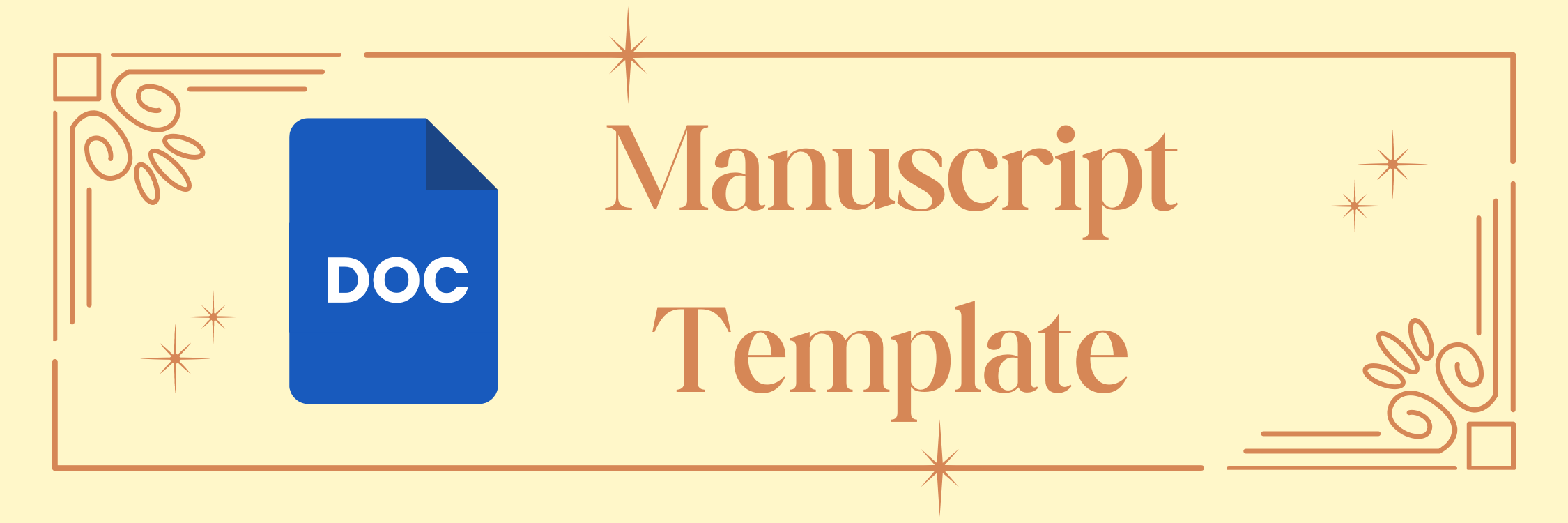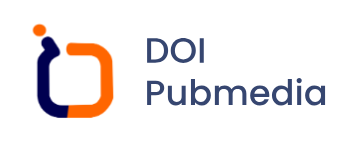The creative economy for sustainable tourism in the post-mining era in Pangkalpinang city
DOI:
https://doi.org/10.69812/itj.v1i2.34Keywords:
Creative Economy, Sustainable Tourism, MSMEs, Post MiningAbstract
Micro, Small, and Medium Enterprises (MSMEs) in Pangkalpinang are crucial contributors to the local economy, especially in the post-tin mining era, by driving economic diversification and regional development. This research delves into the role of the creative economy in fostering sustainable tourism during this transitional period. Through a qualitative approach, the study employs the SWOT analysis framework to assess the development of MSMEs and their connection to sustainable tourism in Pangkalpinang. The strengths of these MSMEs are evident in their distinctive product offerings, robust stakeholder networks, and the recognition and certifications they have attained. These elements position them well within the market. However, they face notable internal challenges, including limited resources, technological constraints, and financial difficulties, which hinder their growth potential. Externally, MSMEs in Pangkalpinang contend with high economic inflation, stiff competition from larger retail entities, and shifting consumer preferences driven by economic downturns. These factors create a challenging environment for MSMEs to thrive. Despite these challenges, there are significant opportunities for growth. MSMEs can capitalize on product diversification, which allows them to cater to a broader range of consumer needs. Additionally, there is substantial support from the government and various institutions, which can provide the necessary backing for these enterprises. Aligning their business models with sustainable tourism trends also presents a promising avenue for long-term success. By leveraging these opportunities, MSMEs in Pangkalpinang can enhance their resilience and contribute meaningfully to sustainable regional development in the post-mining era.
Downloads
References
Akhavan, P., Barak, S., Maghsoudlou, H., & Antuchevičienė, J. (2015). FQSPM-SWOT for strategic alliance planning and partner selection: Case study in a holding car manufacturer company. Technological and Economic Development of Economy, 21(2), 165-185. https://doi.org/10.3846/20294913.2014.965240
Ausat, A.M., Al Bana, T., & Gadzali, S.S. (2023). Basic Capital of Creative Economy: The Role of Intellectual, Social, Cultural, and Institutional Capital. Apollo: Journal of Tourism and Business, 1(2), 42-54.
Awalia, N., Mulatsih, S., & Priyarsono, D. (n.d.). Analisis Pertumbuhan Teknologi, Produk Domestik Bruto, dan Ekspor Sektor Industri Kreatif Indonesia. Jurnal Ekonomi dan Kebijakan Pembangunan, 2(2), 135–155.
Bayram, B. Ç., & Üçüncü, T. (2016). A case study: Assessing the current situation of forest products industry in Taşköprü through SWOT analysis and analytic hierarchy process. Kastamonu University Journal of Forestry Faculty, 16(2), 510-514.
Beck, T., Demirguc-Kunt, A., & Levine, R. (2005). SMEs, Growth, and Poverty: Cross-Country Evidence. Journal of Economic Growth, 10(3), 199-229. https://doi.org/10.1007/s10887-005-3533-5
Berry, A., & Levy, B. (2017). Indonesia’s Small and Medium-size Exporters and their Support Systems. World Bank Policy Research Working Paper.
Bilton, C. (2007). Management and Creativity: From Creative Industries to Creative Management. Blackwell Publishing.
Chermack, T., & Kasshanna, B. (2007). The Use and Misuse of SWOT Analysis and Implications for HRD Professionals. Human Resource Development International, 10(4), 383-399. https://doi.org/10.1080/13678860701718760
Denzin, N. K., & Lincoln, Y. S. (Eds.). (2018). The SAGE Handbook of Qualitative Research (5th ed.). SAGE Publications.
Erman, E. (2010). Actor, Access, and Environmental Politic in Bangka Tin Mining. Journal of Indonesian Society, 16(2), 71-101.
Fitri, A., Purwanto, P., & Marimin, M. (2019). Environmental Impact Assessment of Tin Mining in Bangka Island. Environmental Management Journal, 34(2), 123-134.
Gürel, E., & Tat, M. (2017). SWOT Analysis: A Theoretical Review. The Journal of International Social Research, 10(51), 994-1006. https://doi.org/10.17719/jisr.2017.1832
Haryadi, D., Ibrahim, I., & Darwance, D. (2023). Environmental Improvement Policy through the Obligation of Post-tin Mining Reclamation in the Islands of Bangka Belitung. IOP Conference Series: Earth and Environmental Science, 1175(012021). https://doi.org/10.1088/1755-1315/1175/1/012021
Haryanto, T. (2021). Economic Contributions of MSMEs in Pangkalpinang: Employment and Growth Dynamics. Journal of Regional Economic Studies, 35(2), 145-162.
Howkins, J. (2013). The Creative Economy: How People Make Money from Ideas. Penguin UK.
Jika Anda memerlukan tautan langsung atau akses ke artikel tersebut, saya dapat membantu lebih lanjut!
Kniazeva, M., & Baskin, E. (2023). SWOT Analysis. SAGE Publications, Inc.
Kumar, S., & K.B, P. (2023). SWOT ANALYSIS. International Journal of Advanced Research, 11(744-748). https://www.journalijar.com
Marques, C. B., Richter, M. F., Steigleder, C. N., Fonseca Holz, R. D., Paraguassú-Chaves, C. A., Almeida, F. M., Trindade, C. D., Filho, S. A., Smith, R. D., & Aznar, S. D. (2022). Tourism and Sustainability. International Journal for Innovation Education and Research, 10(11), 72-87. https://doi.org/10.31686/ijier.vol10.iss11.3985
Marwanto, G. G., Rahmadi, A. N., & Yap, N. (2023). Evaluation of Micro, Small And Medium Enterprises (MSMES) Financing Policies For MSME Actors In Yogyakarta. Return: Study of Management, Economic and Business.
Muzwardi, A., & Simbolon, G. (2024). SWOT and PEST Analysis in Tourism Management in Bintan Regency. Indonesian Tourism Journal, 1(1), 82–92. https://doi.org/10.69812/itj.v1i1.21
Papaluca, O., Tani, M., & Troise, C. (2020). Entrepreneurship and Sustainability in Tourism: An Interpretative Model. Journal of Management and Sustainability, 10(1), 38-53. https://doi.org/10.5539/jms.v10n1p38
Pratama, R. (2020). Growth and Development of MSMEs in Pangkalpinang: Trends and Challenges. Economic Development Journal, 28(3), 99-112.
PT Timah. (2022). Performance Report. Retrieved from: https://timah.com/blog/investor-relations/performance-report.html
Putra, A. R., Ernawati, E., Jahroni, J., Anjanarko, T. S., & Retnowati, E. (2022). Creative Economy Development Efforts in Culinary Business. Journal of Social Science Studies (JOS3), 2(1), 21-26.
Rahayu, S. (2020). The Role of Agricultural MSMEs in Food Security: A Case Study in Pangkalpinang. Journal of Agribusiness Management, 15(1), 77-89.
Rozmi, A. N. A., Nordin, A., & Bakar, M. I. A. (2018). The perception of ICT adoption in small medium enterprise: A SWOT analysis. International Journal of Innovation Business Strategy, 19(1), 69-79.
Suhartono, E., Adianita, H., Handayati, R., Nurcholidah, L., & Sulaeman, M. M. (2024). Enhancing Managerial Skills for MSME Practitioners Through Community-Based Education Programs. Jurnal Terobosan Peduli Masyarakat (TIRAKAT), 1(2), 68-77.
Susanti, R. (2021). Land Subsidence Due to Underground Tin Mining: A Case Study in Bangka Island. Geological Hazards and Disaster Management Journal, 45(3), 210-225.
Susilowati, I. (2019). Creative Industries and Handicrafts: The Growth of MSMEs in Pangkalpinang. Journal of Creative Economy and Cultural Studies, 24(2), 105-120.
Sutarman, A., Rahardja, U., Putri Oganda, F., Millah, S., & Nur Azizah, N. (2023). The Role of Information Technology in Empowering the Creative Economy for Sustainable Tourism. Aptisi Transactions on Technopreneurship (ATT), 5(2), 175-185.
Sutrisno, S. (2023). The Role of Partnerships and Business Networks in the Growth of MSMEs in the Digital Age. Technology and Society Perspectives (TACIT), 1(3), 122–131.
UNCTAD. (2018). Creative Economy Outlook: Trends in International Trade in Creative Industries. United Nations Conference on Trade and Development.
Downloads
Published
How to Cite
Issue
Section
License
Copyright (c) 2024 Windy Shelia, Fitria Gusti Estresia, Wawan Irawan

This work is licensed under a Creative Commons Attribution-ShareAlike 4.0 International License.
You are free to:
- Share — copy and redistribute the material in any medium or format for any purpose, even commercially.
- Adapt — remix, transform, and build upon the material for any purpose, even commercially.
- The licensor cannot revoke these freedoms as long as you follow the license terms.
Under the following terms:
- Attribution — You must give appropriate credit, provide a link to the license, and indicate if changes were made . You may do so in any reasonable manner, but not in any way that suggests the licensor endorses you or your use.
- ShareAlike — If you remix, transform, or build upon the material, you must distribute your contributions under the same license as the original.
- No additional restrictions — You may not apply legal terms or technological measures that legally restrict others from doing anything the license permits.















